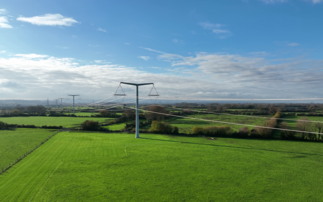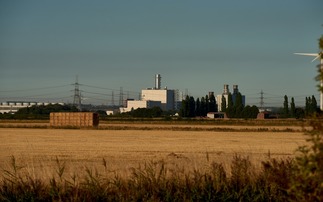Image: Kanenori
Britain Remade campaign warns the planning system is hampering efforts to deliver the 70GW of renewable power needed to ensure energy security for the UK
A new roadmap detailing how Britain can cut its dependence on volatile gas markets and achieve energy security by 2030 claims that the full potential of clean power cannot be unleashed without major planning system reform.
Launched at Octopus Energy headquarters just days before the government's much-anticipated 'Green Day' package of decarbonisation policies, The Powerbook: A Playbook for Energy Security by 2030 argues Ministers should prioritise the fast-tracking of clean energy projects within designated zones, the speeding up of small modular reactor (SMR) development through the streamlining of regulatory approval processes, and the ending of the de facto ban on new onshore wind projects in England.
Such measures would cut carbon dioxide emissions by 40 million tonnes a year - the equivalent of taking 31 million cars off the road - the report claims, adding that Britain needs to unlock an additional 70GW of renewable power in less than seven years on top of the 40GW already available in order to meet national climate goals and achieve energy security.
However, delivering new projects at such a scale would require a major overhaul of the planning system to reduce the amount of unnecessary paperwork and red tape that is currently holding back the UK's "clean energy revolution".
According to Britain Remade, it can take up to 13 years for an offshore wind farm to progress through the current planning system despite the construction and installation of the turbines only taking two to three years.
The report also highlights how environmental impact assessments for major clean energy projects such as the Sizewell C and Hinkley Point C nuclear projects and the East Anglia Two offshore wind farm often stretch to tens of thousands of pages.
As such, it calls on the government to embrace reforms that could slash the amount of time it takes to build new offshore wind farms to just five years, ensure new onshore wind turbines can be up and running in just four-and-a-half years, and deliver large solar farms inside just 15 months.
Moreover, to facilitate rapid deployment of new SMRs, a list comprising all existing licensed nuclear sites and former coal powered power stations where they can be built should be urgently drawn up by the new Great British Nuclear agency in the hope of at least two SMRs connecting to the grid in less than seven years, Britain Remade said.
The group also advocates the removal of planning permission to install solar panels on commercial and residential rooftops outside of Areas of Outstanding Natural Beauty or Conservation Areas.
Another key pillar of the roadmap is to end the ban on new onshore wind developments in England by removing the requirement for unanimous support for planning applications and replacing it with a Community Safeguard so as to enable the delivery of 20GW of onshore wind capacity by 2030. The new approach would allow projects to go ahead unless a majority of local residents actively oppose it, while Britain Remade suggests those who live nearest to an onshore wind farm be given discounts on their energy bills.
In addition, the report proposes the creation of Clean Power Zones, modelled on policies already in place in Spain, where fast-tracked planning processes for new clean energy projects eliminates the need for environmental impact assessments in all but exceptional cases for all onshore wind projects up to 75MW and solar projects of 150MW and under.
According to Sam Richards, founder and campaign director for Britain Remade, Britain's "Byzantine planning system" is simply not built to deliver a clean energy revolution.
"By speeding up the delivery of clean energy projects Britain will be energy secure by 2030, meaning we will no longer be reliant on expensive foreign gas, households will benefit from cheaper bills and tens of thousands of good quality jobs will be created across the country," he said. "But we cannot unleash the full potential of clean energy and enjoy the benefits until we reform our outdated planning system.
"The measures we've outlined would not only put rocket boosters under the delivery of new clean energy developments across Britain, but people that live near new energy infrastructure the benefit of lower bills- all while significantly boosting nature," Richards added.
"Britain is the country that gave birth to the Industrial Revolution, split the atom and turned on the first commercial nuclear power station. There is no reason why we cannot be a clean energy superpower."
Greg Jackson, CEO of Octopus Energy, added that planning and grid connections were two giant obstacles stopping a great swathe of renewables being built, and stifling the the biggest opportunity for economies and businesses since the internet.
"Readily available investment is impossible to deploy in the UK because the grid system was just not built for a renewable revolution," he added. "We need to increase the pace of development 20-fold, and allow faster grid connection and better community buy-in for onshore wind and solar. This will bring down costs and deliver good green growth - a win-win for all."
Keep up to date with all the latest green business news by signing up to the free Daily and Weekly BusinessGreen Newsletters.









